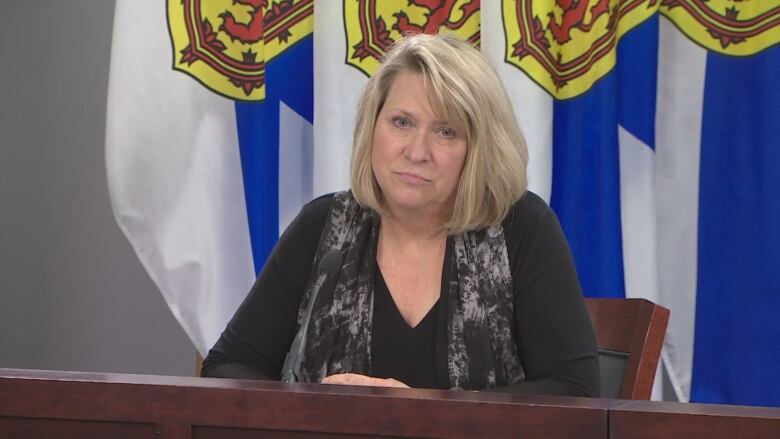Calls to ban birth alerts grow louder as other provinces end controversial practice
N.S. says it’s reconsidering alerts that can result in newborns being seized from mothers

Nova Scotia is one of the last provinces to still use a controversial practice known as birth alerts that has been widely condemned for targeting Indigenous and other racialized women.
A birth alert is when child welfare services notifies a hospital that they believe an expectant mother is high risk and that a newborn baby may need protection. It can lead to the baby being seized without the mother's consent.
"I have seen young families torn apart, and it has taken years and years and years to get back their children and sometimes they never do," Pam Glode-Desrochers, executive director of the Mi'kmaw Native Friendship Centre, told CBC's Information Morning.
According to the province, 100 birth alerts were issued in 2018-2019 and there were 95 in 2019-2020.
Last week, P.E.I. and Saskatchewan became the latest provinces to ban the practice, which is already outlawed in places like Manitoba, Ontario and B.C.

Nova Scotia's Department of Community Services says it's currently reviewing the practice, but that a birth alert may still be issued if expectant parents choose not to access supports that are offered to them.
"I don't believe that women are refusing support," said Martha Paynter, a registered nurse and founder of the non-profit group Wellness Within. "I think we need to examine very critically from an anti-racist and anti-colonial lens how it is that we present support."
She sent a letter to Community Services Minister Kelly Regan last February and again this year calling for Nova Scotia to ban birth alerts as other provinces have done. She said more supports are also needed to help marginalized parents before, during and after birth.
There are other ways to ensure newborns are protected that don't involve taking them away from their mother moments after birth, Paynter said.
"We have these conversations about supports in really non-threatening ways, in ways that are separate and guarantee that the space where the mother is receiving health services is not part of this whole threat and punishment," she said.

The National Inquiry into Missing and Murdered Indigenous Women and Girls said in 2019 that birth alerts are "racist and discriminatory" and called on governments to immediately ban the practice.
"We know that many of our Indigenous women that are facing some kind of trauma or crisis in their life right now are totally at risk," Glode-Desrochers said. "They are being targeted, and we know this. We've seen it time and time again."
She said the practice creates fear and discourages families from seeking support and medical care.
Province says it's reviewing practice
Regan declined CBC's request for an interview.
The minister said in an email that the current legislation allows the province to identify expectant parents "who may need our help and offer them support, including counselling and parenting programs."
"Because participation is voluntary, some expectant parents may not choose to access these supports. In these cases, and when there are reasonable grounds to believe that the child will be at risk when born, a birth alert may be issued," Regan said.

She said the province will continue to work with parents "to enable the baby to return to the family if appropriate."
"We have begun to move to a Child Welfare system that focuses more on prevention and early intervention," Regan said. "We are placing a stronger focus on supporting families as early as possible — before they find themselves in crisis — to avoid more intrusive interventions."
Alternative programs are out there
The president of the Native Women's Association of Canada has also spoken out against birth alerts, saying it puts both the mother and child in a far more precarious position.
"The birth alerts are created without the knowledge of the parent and they often target parents who were involved with the child welfare system in the past. Sometimes simply being Indigenous puts the parents at risk," said Lorraine Whitman, also known as Grandmother White Sea Turtle.
She wants provincial governments to put more focus on prenatal and postnatal care for Indigenous mothers, including providing more midwifery support and training in rural communities.
Glode-Desrochers said there are specialized programs offered by organizations such as the Mi'kmaw Native Friendship Centre that help families in a culturally appropriate way.
She and Paynter also point to supportive housing programs in places like B.C. and Saskatchewan where mothers dealing with substance abuse issues can attend before they give birth and stay there once the baby is born.
"We need to be seen as a partner and know that we can be relied on to support these individuals," Glode-Desrochers said, "and what's happening is we have institutions making decisions for community members without even engaging with the community and the resources and the great programs that are already out there."
With files from CBC Radio's Information Morning